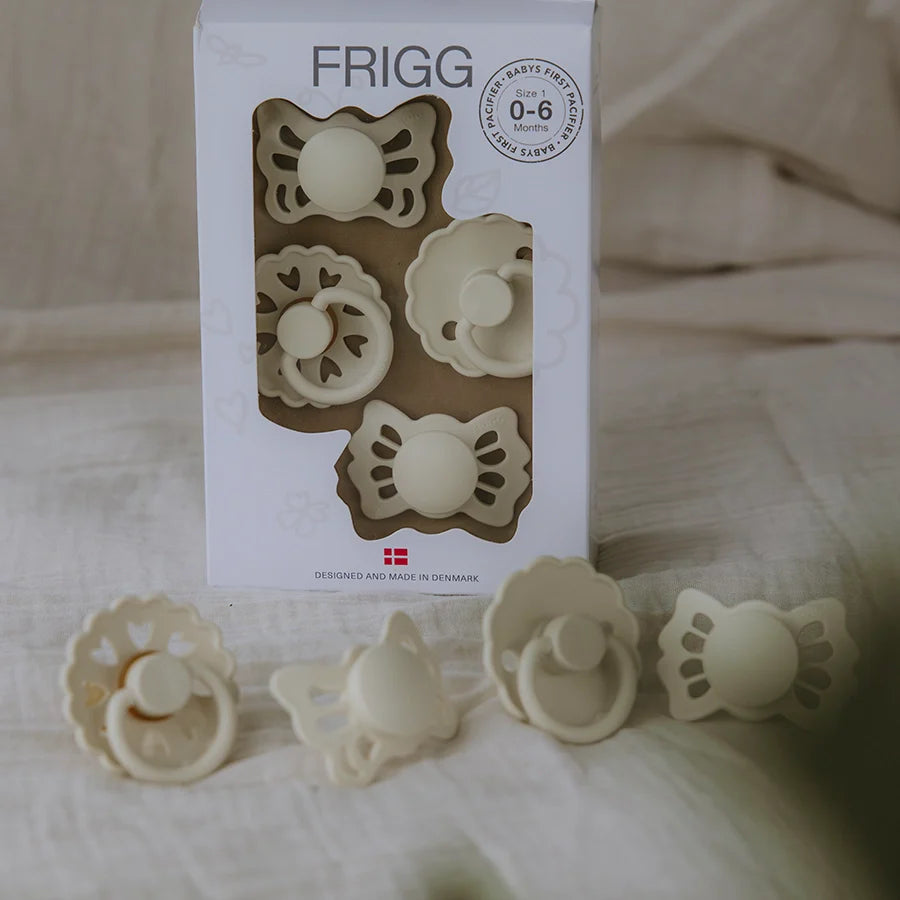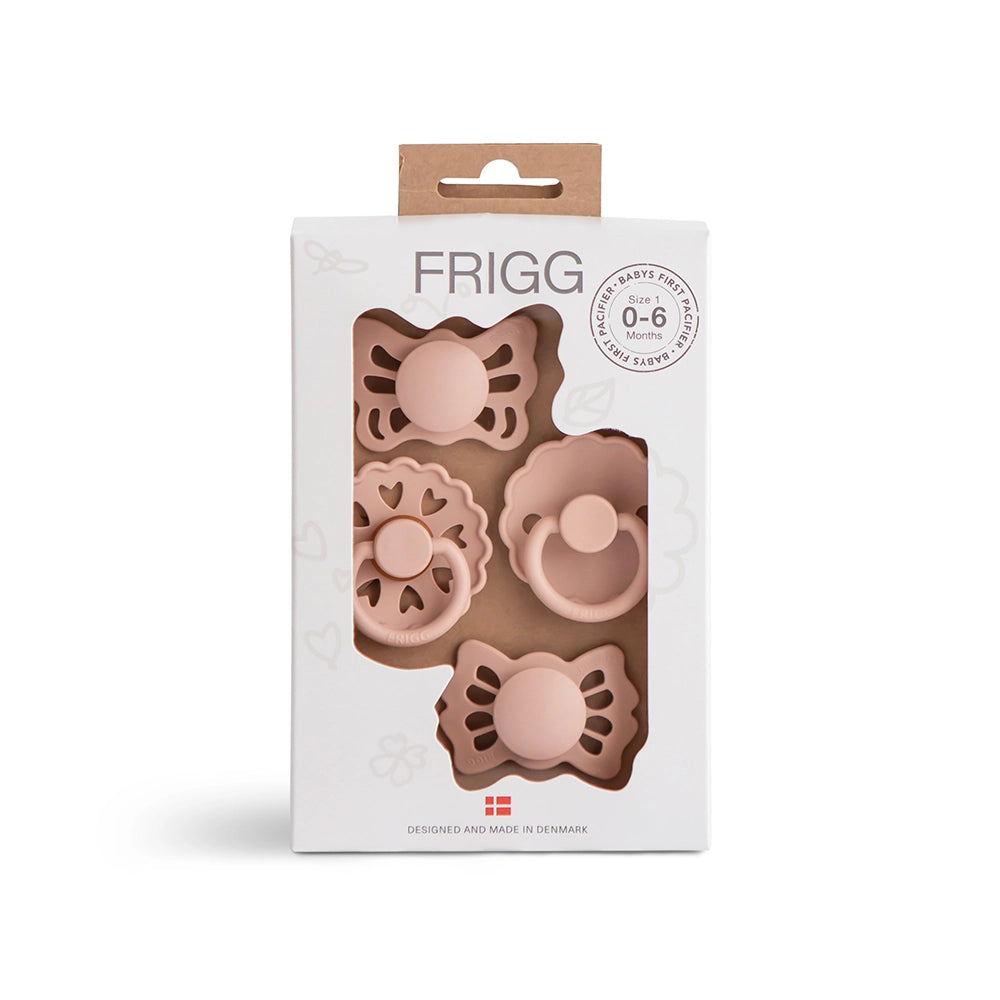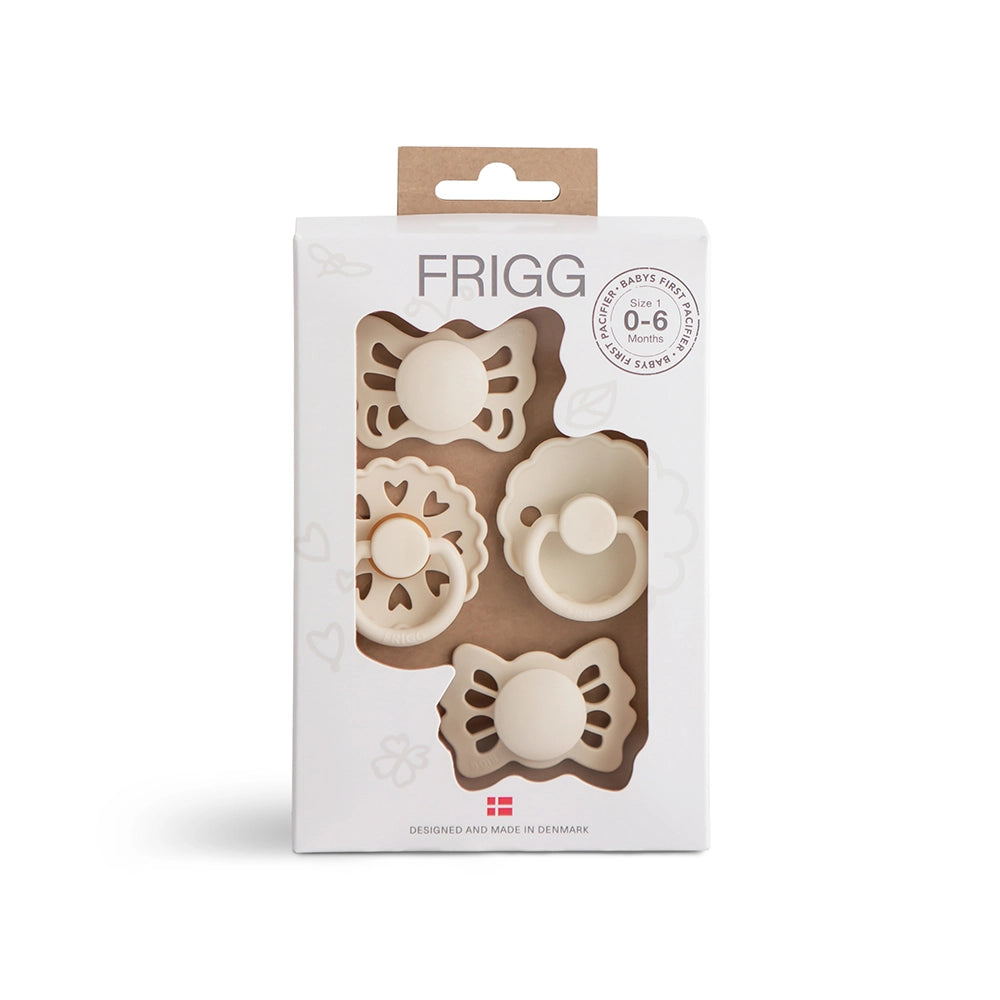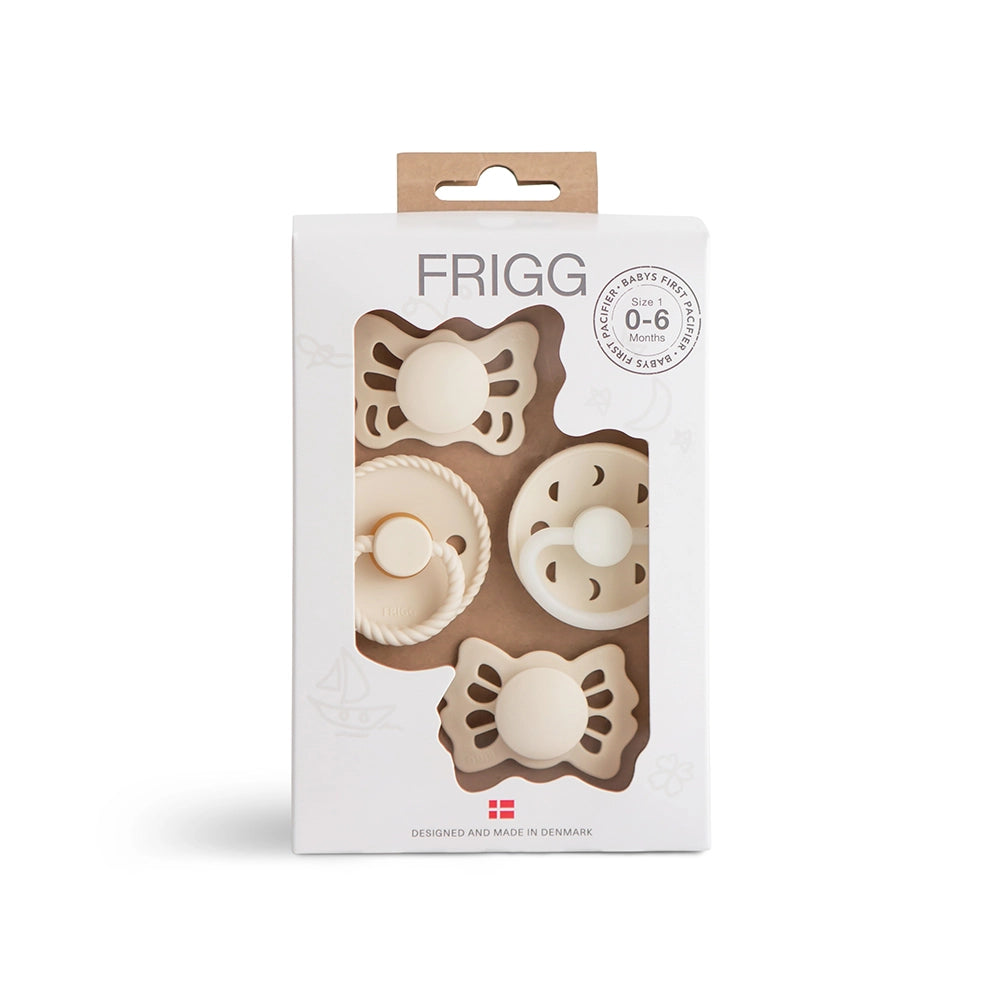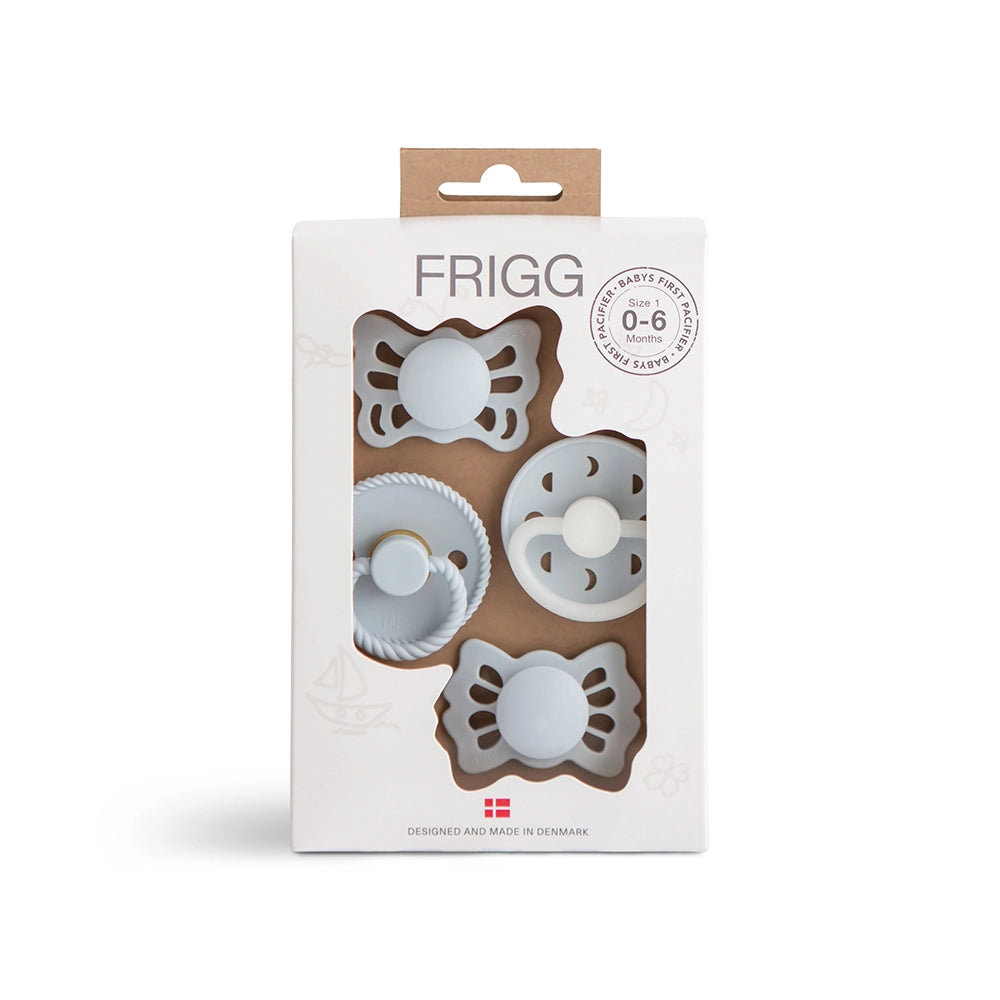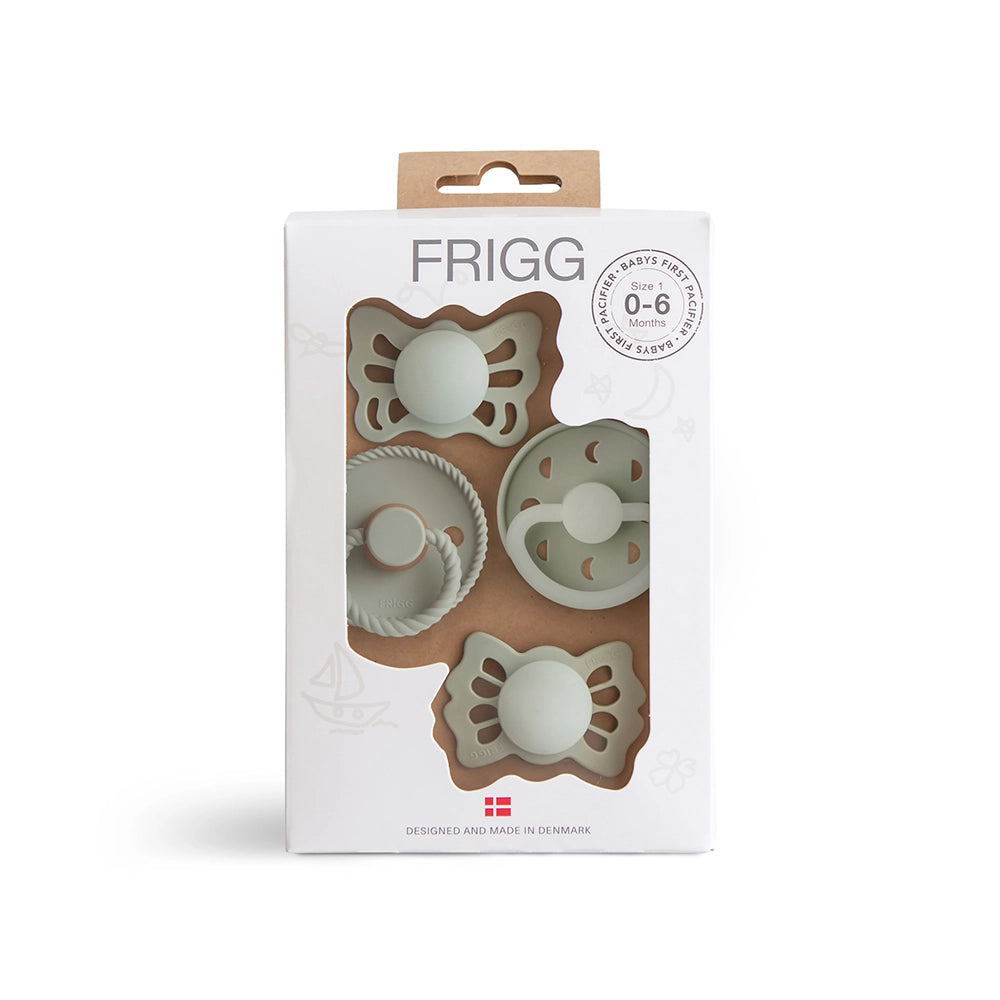Pacifier Lifespan: What Parents Should Know
During the pacifier’s short life, it is scalded, chewed, tugged, thrown on the ground, and exposed to several other things you may not have imagined. This gives the pacifier a limited shelf life.
We therefore recommend you replace the pacifier after 4-8 weeks of use. However, there are six conditions that can either extend or shorten the shelf life of the pacifier.
The following can reduce the life of your FRIGG pacifier
-
How you store your baby’s pacifier
-
The light and heat can affect the durability of the pacifier. So always make sure you keep clean pacifiers dry, shaded and not too hot.
-
How you clean the pacifier. It is important to clean the pacifier properly. Poor cleaning can damage the pacifier. That means: Do not ever boil it, and do not put it in the washing machine nor use detergents to clean it.
How many pacifiers should you have in use at a time?
If your baby constantly has 5-6 pacifiers in circulation, each pacifier will obviously be used less. With FRIGG’s natural rubber pacifiers, we recommend that you always have several pacifiers on the go at a time and that you replace them regularly. Natural rubber expands over time – unlike silicone.
How often does your child use the pacifier?
The more your baby uses the pacifier, the faster it will wear out. Likewise, there can be a big difference from child to child in how strongly they suck on the pacifier. A strong suction can significantly reduce the durability of natural rubber pacifiers.
Does your child chew on the pacifier?
Some children start biting the pacifier when they get teeth. It is both a fun and comfortable feeling for the baby – but unfortunately pacifiers can’t withstand sharp milk teeth.
Your little one started chewing the pacifier? Read our guide to what it means and what to do.
Natural Rubber vs. Silicone: What’s the Real Difference?
Natural rubber is 100% organic and beautifully soft - but it doesn’t last as long as silicone. Its texture, warmth, and stretchiness make it comforting for many babies, but it’s also more sensitive to heat, light, and wear.
Want help choosing the right material for your baby? Read our full guide on natural rubber vs. silicone pacifiers.
